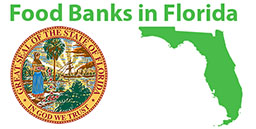Florida Medicaid
Florida’s Medicaid program provides comprehensive health coverage to more than 7.3 million lower-income Floridians (as of December, 2021.) Medicaid pays for a wide-range of services, depending on your age, financial circumstances, family situation, or living arrangements.
These services are provided through a large network of health care providers that you can access directly using your Medicaid card or through your managed care plan if you are enrolled in managed care. Some services may have small co-payments, which can be waived if you cannot afford them.
Florida Medicaid is a joint federal and state program that provides healthcare coverage to low-income individuals and families. Administered by states within broad federal guidelines, Medicaid aims to ensure access to essential medical services for those who cannot afford health insurance or meet specific eligibility criteria.
Florida Medicaid Program Eligibility and Benefits
Medicaid eligibility varies by state, but there are certain mandatory eligibility categories defined by federal guidelines. These categories include low-income children, pregnant women, parents or caretaker relatives, individuals with disabilities, and low-income seniors. Additionally, some states have expanded Medicaid to cover adults without dependent children who meet income criteria.
Medicaid provides a comprehensive range of healthcare services, including doctor visits, hospital care, preventive services, prescription medications, laboratory tests, and mental health services. Each state has its own Medicaid program, and benefits and coverage may vary slightly.
Florida Medicaid Application Process
Individuals interested in applying for Medicaid can do so through various methods, depending on the state. Applications can generally be submitted online, by mail, or in person at local offices. Applicants must provide personal and financial information, including income, household size, and proof of residency. States may also require verification documentation, such as pay stubs or tax returns.
Once the application is submitted, it is reviewed by the state Medicaid agency, which determines eligibility based on the established criteria. Upon approval, individuals are enrolled in their state’s Medicaid program and receive a Medicaid identification card, which they can present to healthcare providers when seeking services.
Program Impact and Benefits
Medicaid plays a vital role in ensuring access to healthcare for low-income individuals and families who would otherwise be unable to afford necessary medical services. The program improves health outcomes, reduces health disparities, and provides financial protection against high medical costs.
Medicaid coverage helps individuals receive preventive care, manage chronic conditions, and access necessary treatments and medications. It also plays a crucial role in supporting vulnerable populations, such as children, pregnant women, individuals with disabilities, and low-income seniors, who often have higher healthcare needs.
Florida Medicaid Program Challenges and Initiatives
Medicaid faces various challenges, including rising healthcare costs, administrative complexities, and the need for continued program improvement. Funding limitations, changing federal policies, and budgetary constraints at the state level can impact program effectiveness and access to care.
Efforts are being made to address these challenges and improve Medicaid programs. Initiatives include exploring innovative care delivery models, promoting value-based care, expanding access to behavioral health services, enhancing coordination between Medicaid and other healthcare programs, and implementing technology solutions to streamline administrative processes and improve efficiency.
Find Florida Food Banks



